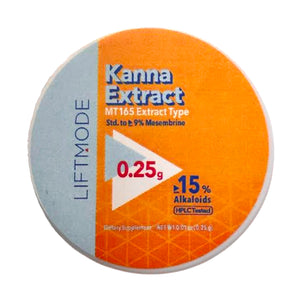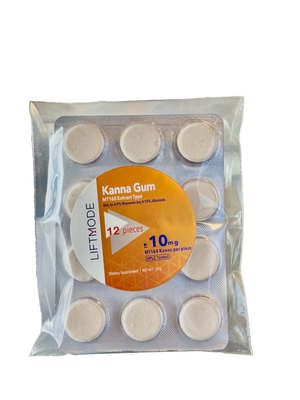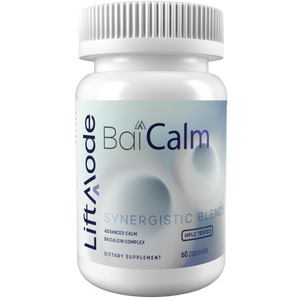Caffeine vs alcohol, caffeine vs nicotine, and other caparisons are questions that we often get asked by people. In this article, we’ll explore the top five caffeine comparisons. We hope that this will provide readers with some informative background knowledge on the effects of caffeine.
To understand more about how caffeine works, read through our
product description or our
top ten facts about caffeine. Please use caffeine responsibly. If you are interested in combining it with other substances, make sure that there are no warnings about interactions – especially with stimulating medication. Do not exceed the recommended dosage for caffeine.
![]()
1. Caffeine vs L-Theanine: Top Synergistic Stack
In the case of caffeine vs L-Theanine, it’s difficult to find a real winner. For more information about this, read our article on what the <science says about caffeine vs L-Theanine>. Both substances are great at improving your focus and attention, while L-Theanine is thought to be more of a relaxing substance.
Recent studies have shown that L-Theanine may be just as effective as caffeine at improving attention and cognition.
[1] The reason that most people didn’t know about this before is that the dosage required to feel these L-Theanine effects is at least 200 mg – roughly eight cups of tea! However, now that
capsules of pure L-Theanine are readily available, it’s much easier for people to start to understand the wonderful benefits of
L-Theanine.
By the way, did we mention before that L-Theanine has almost zero side effects?
[2] It’s the active compound in tea and is great for improving your mood and promoting relaxation. This is definitely something to think about when you consider caffeine vs L-Theanine. Our best bet:
take the two together!
2. Caffeine vs Alcohol: Totally Different Effects
[caption id=""attachment_1518"" align=""alignright"" width=""300""]
![]()
Liftmode's Caffeine + L-Theanine[/caption]
The effects of caffeine and alcohol couldn’t be more different! On the one hand, alcohol is a powerful
depressant, lowering the sensations from your Central Nervous System.
[3] Caffeine, on the other hand, is a very potent stimulant – increasing your awareness, energy, and focus.
[4]
So, basically, comparing caffeine vs alcohol means comparing completely different substances with very different effects. Both these substances are very widely consumed around the world, with alcohol being far more damaging to lives and communities than caffeine.
[5]
3. Caffeine vs Nicotine: Battle of the Addictions
Nicotine is an addictive substance found in cigarettes. Nicotine has been singled out as the chemical responsible for cigarette and tobacco addiction. When you consider caffeine vs nicotine, it’s important to consider the potential for addiction to both substances. Nicotine releases GABA, dopamine, and glutamate – all of which are thought to be responsible together for forming the basis of nicotine addiction.
[6]
Caffeine is also thought to be addictive, but nowhere near as addictive as nicotine. In fact, there is some debate about whether or not caffeine is actually addictive at all.
[7] However, some researchers have pointed to something called ‘caffeine use disorder’ – a type of psychological addiction to caffeine.
[8] Furthermore, the fact that users suffer from physical withdrawal symptoms after long periods of using it indicates that it is addictive, at least to some extent.
[9]
So, when you compare caffeine vs nicotine, it’s important to remember that one of these substances is far more addictive than the other.
4. Caffeine vs Coffee: Extracted or Raw?
[caption id=""attachment_955"" align=""alignright"" width=""300""]
![]()
caffeine is a great energizing supplement![/caption]
Caffeine is the active stimulant found in coffee beans and is released when you soak ground, roasted beans in hot water. Caffeine is an important compound that gives coffee it’s great benefits.
[10] When you compare caffeine vs coffee, you are comparing the extracted compound with the raw natural product. Of course, a caffeine extract is more potent than the raw product – coffee.
Caffeine extracts are far stronger than coffee. This is great for people looking for a powerful energy and focus boost, but it also means that there is more potential for abuse. Caffeine can be dangerous when used in excess – overdose can cause serious negative effects, hyperstimulation, and even death.
[11] Please use caffeine extracts responsibly.
5. Caffeine vs Green Tea Extract: Energy Over Health
When we contrast caffeine vs Green Tea extract, we’re looking at two substances with different potential effects. On the one hand, while caffeine may have some health benefits, its main use is a powerful stimulant. On the other hand, Green Tea extract is used predominately as a health supplement with potent antioxidant and anti-inflammatory effects.
[12]
Some of the most talked-about benefits of Green Tea extract include its ability to destroy free radicals (antioxidant), its ability to support a healthy immune system, and the powerful effects it has at maintaining a healthy weight.
[13] Please read through our
product description for more information about our Green Tea extract.
[caption id=""attachment_1464"" align=""alignright"" width=""298""]
![]()
Liftmode's Green Tea Extract: 98% Polyphenols, 50% EGCG[/caption]
So, when you compare caffeine vs Green Tea extract, you are comparing an energizing stimulant with a health-promoting supplement. Green Tea extract may have some energizing effects – although these may be due to the caffeine that is often present in Green Tea extracts.
Our pure Green Tea extract contains only polyphenols and catechins – the health-promoting compounds. Using caffeine with Green Tea extract may also be a good supplement stack.
Conclusion
In summary, caffeine is a highly effective energizing substance that can be compared against a number of supplements. Caffeine vs other substances is a good way to start learning more about the effects of caffeine and how they compare to other important supplements. For more information about caffeine, read through our
top ten facts about caffeine.
Medical Disclaimer
Not intended to treat, diagnose, or cure any disease or ailment. Please read and fully understand potential adverse effects before using this product. These statements have not been reviewed by the FDA and are not written by a medical professional. Please consult your doctor before using any supplements, especially if you have any medical conditions. Tristan
B.Sc. in Molecular Biology and Biochemistry Researched & written by
Tristan and verified by the Liftmode.com Research Team
References
[1] Acute effects of theanine, caffeine and theanine-caffeine combination on attention, CN Kahathuduwa et al., Nutr Neurosci. 2016 Feb 11. [Epub ahead of print]
[2] In Search of a Safe Natural Sleep Aid, TP Rao et al., J Am Coll Nutr. 2015;34(5):436-47
[3] Alcohol and the central nervous system, I Imam, Br J Hosp Med (Lond). 2010 Nov;71(11):635-9
[4] Caffeine-Not just a stimulant, MJ Glade, Nutrition. 2010 Oct;26(10):932-8.
[5] Caffeine, Alcohol, and Youth: A Toxic Mix, MC O’Brien et al., J Caffeine Res. 2011 Mar; 1(1): 15–21.
[6] Nicotine Addiction, NL Benowitz, N Engl J Med. 2010 Jun 17; 362(24): 2295–2303.
[7] Is caffeine addictive?--a review of the literature, S Satel, Am J Drug Alcohol Abuse. 2006;32(4):493-502.
[8] Caffeine Use Disorder: A Comprehensive Review and Research Agenda, SE Meredith et al., J Caffeine Res. 2013 Sep; 3(3): 114–130.
[9] A critical review of caffeine withdrawal: empirical validation of symptoms and signs, incidence, severity, and associated features, Juliano LM, Griffiths RR, Psychopharmacology (Berl). 2004 Oct;176(1):1-29. Epub 2004 Sep 21.
[10] A perception on health benefits of coffee, SE George et al., Crit Rev Food Sci Nutr. 2008 May;48(5):464-86
[11] Fatal caffeine overdose: two case reports, S Kerrigan, T Lindsey, Forensic Sci Int. 2005 Oct 4;153(1):67-9.
[12] Beneficial effects of green tea: A literature review, SM Chacko et al., Chin Med. 2010; 5: 13, Published online 2010 Apr 6.
[13] Health-promoting effects of green tea, Y Suzuki et al., Proc Jpn Acad Ser B Phys Biol Sci. 2012 Mar 9; 88(3): 88–101.




